Arts & Entertainment
Laughing with Lily
Tomlin on getting married, Ernestine and Edith, Lucy, Carol and more
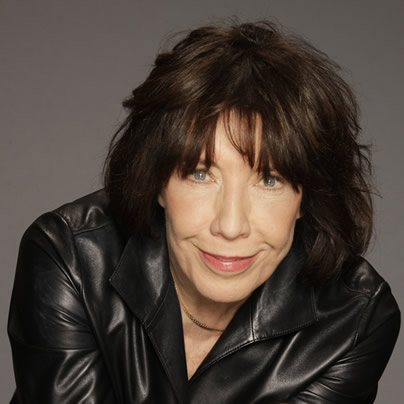
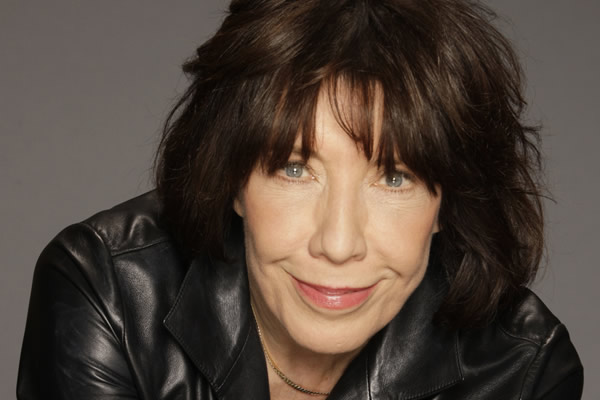
Lily Tomlin’s live show updates her classic characters with modern situations. (Photo by Greg Gorman)
Lily Tomlin
Music Center at Strathmore
5301 Tuckerman Lane
Mar. 28 at 8 p.m.
Comedic legend Lily Tomlin plays the Strathmore Friday night. Last week she spent a delightful hour with us by phone from her Los Angeles home in — as is typical for the actress — a leisurely, rambling-in the-best-way conversation that few stars of her caliber make time for. Her comments have been slightly edited for length.
WASHINGTON BLADE: How has comedy changed since you began? This show revives some classic characters and bits, but do you find some elements might have been a scream in the ‘60s but fall flat today?
LILY TOMLIN: I imagine you wouldn’t find a whole lot that would still be relevant. I couldn’t say that in a totally general way but overall, I would say the humor then would have been relative to something that was going on then. We didn’t deal so much with universal truths in the sense of the human condition. We did a lot of snappy stuff that was going on at the time. When we were doing “Laugh-In,” Ronald Reagan was the governor and later he was the president so a lot of stuff we said was just Reagan and you’d be watching “Laugh-In” on some cable show or something and they wouldn’t say governor or president, they just said Ronald Reagan or Reagan, so much of what we said still applied when he was president. But in general, the values and taboos of society have changed a lot in 40 years.
BLADE: Is it hard, then, to take your classic characters and make them work now on stage in a way that doesn’t feel frozen in time?
TOMLIN: Well, it’s just what you choose to put in their mouths. The last job Ernestine had was working for Health Care Insurance Corporation denying health care to everyone and prior to that she had a reality webcast chat show all during the Bush administration so she could call the president and presumably she had a webcam so she could see what he was doing. She could call Cheney or anybody and talk about something that was going on at the time.
BLADE: You don’t think Ernestine would still be funny at the switchboard?
TOMLIN: No because we hardly even have switchboards anymore and people barely know what an operator is. But that overbearing bureaucratic dominance still serves in other places. She left the phone company because they were no longer, you know, powerful or omnipotent. She would have had to compete for business.
BLADE: What would Ernestine think of the revelations last year that Big Brother is listening in on everything?
TOMLIN: I’ve been trying to come up with a really great NSA sketch. The secret of it would be (slipping into Ernestine’s voice): “A gracious hello — this is the NSA, the only government agency that actually listens (snorts).”
BLADE: I’ve seen you use her in unscripted formats, too. I remember Ernestine being interviewed once by Joan Rivers. I have no idea if she gave you the questions ahead of time or not, but that would seem quite nerve-wracking to me — the pressure to be funny outside of the sketch format. Was it?
TOMLIN: Well, I know her attitude. It’s not like Ernestine doesn’t live somewhere in my body, she does. Certain characters are especially good for that if they’re really opinionated and fairly short sighted or self interested and don’t care about other people’s feelings. Then they probably improvise fairly well.
BLADE: There was an op-ed shortly after you got married in which a lesbian wrote “we came of age in a time when her one-woman shows changed how we understood ourselves as lesbians and feminists.” To what degree in the ‘70s were you aware or were you aware that your work was not just being enjoyed by lesbians but sort of exalted and claimed in a sense?
TOMLIN: Maybe claimed a little. My mother and dad are from Kentucky and even though I was born in Detroit, because I’m well known and presumably semi-liked in Kentucky, I don’t know for sure, but Kentucky sort of claims me in a way. Very often I read that I was “Kentucky’s own” or “born in Kentucky.” In fact, I put my hands in cement there in some Kentucky hall of fame or something. I told them, “But I’m not really from Kentucky,” and they said, “No one will care. They’ll be glad and they’ll hope you are from Kentucky.” So I’m sure lesbians and other feminists, if I was good and doing good stuff and strong and intelligent, I’d think they’d want to claim me in a sense that, well, you know, “She’s one of us” or whatever people might say in that kind of reference. I’m sure even Mrs. Duggar, if she had one kid that became president of the United States, she might single him out. In any other case, she might not. “These are my kids. Oh, this is Robert, my son, the president.” I don’t know how that stuff goes but even if it did, I’m grateful for it in a sense because, you know, I want to communicate with people. Very often I really want to validate people, validate humanity to some extent. We’re so invalidated in so many other ways and disregarded. Dismissed or thought of as just some lump mass of humanity that’s disposable and exploitable. Rotten to the core.
BLADE: How does comedy validate?
TOMLIN: Just showing what you love and human situations and human attitudes and you show the bad parts, but you show them in a way that we all possess them. We’re all really in the same spaceship together. Politicians, to me, are a separate entity because they’re in a place where they’re actually affecting our lives in profound ways and attempting to do so and not always with the absolute soul of integrity.
BLADE: I found (partner) Jane’s (Wagner) blog a few years ago quite funny when she wrote the blow-by-blow of trying to find the right hot dogs and sunscreen on the Fourth of July. If that was any indication of the interplay between the two of you on something as trivial as finding hot dogs, how on earth did you discuss and settle on when, how or if to get married? (Tomlin and Wagner were married on New Year’s Eve after 42 years together.)
TOMLIN: We didn’t talk about it for a long time because we lived together so long where that wasn’t even a glimmer of a hope or a possibility. … She and I would have liked to have been married and last fall, maybe October or November or something, I said, “You know, maybe we should.” We were both of the same mind … so we just decided to get married. I don’t know if you’ve been on our Facebook, but we made a little thing about it and showed where we went to the license bureau and we just wanted a nice, simple, sweet, quiet little ceremony so we went to Van Nuys, we went out of the way because we didn’t want to be usurped, our control of the situation, you know, “Oh, Jane and Lily were at the license bureau.” But there was so much there, that we made this little vignette of it and it shows us in front of the building. It’s just this old, one-story kind of flat motor vehicle kind-of place. There’s nothing grand or majestic about it, like some old courthouse from another era or anything. And then you stand in line with a bunch of other people and there were young people in tuxedos and bridal dresses. Then you go in another room and this woman who looks like Ruth Bader she has on a black cloak, and she takes them in there and marries them right on the spot. Families were there and they’re so dear. These couples getting married, and you think, “Oh God, help us, all these young kids getting married and you don’t even —,” you know, I worry about them like a mother. Do they have a place to live, any kind of a decent job, are they gonna have kids, and they don’t have any idea what it takes to raise those kids, the money it costs. So we get up to the window and we get our license and then we go outside and there was a hot dog stand with a little cart and a multi-colored umbrella, so we used that as our backdrop. It’s just like four little photos. Now you’re gonna go and expect like a feature film or something, but it was just our little way to acknowledge it. We didn’t post it till after we got married, which we did on New Year’s Eve.
BLADE: Does it feel any different? Was there any psychological shift or anything you weren’t expecting?
TOMLIN: I haven’t perceived it. Maybe there is, kind of. The nice part about it is that it’s out in the public. Not that that many people would have known we were together anyway, but when it’s reported that you’re married, it’s so kind of official. The best part is that Jane is from Tennessee and my parents are from Kentucky so we have southern families and my family more than hers were more fundamentalist …
BLADE: You were raised Southern Baptist, right?
TOMLIN: Well, my dad wasn’t really. He was a drinker and a gambler and I went to the bookie joints with him and every Sunday when I was a kid, because of all the fire and brimstone that goes on in the fundamentalist church, I would sit up in the kitchen with my dad. We had an old Formica table and I was maybe 5 or 6 or 7 and I was worried about my father not going to heaven. My dad would be having a beer and some sardines and crackers like on a Sunday morning and my mother is getting ready for church and I’d be up there in the middle of the table trying to get daddy to go to church with us. Argh. Anyway, my mother and dad are both totally individual and funny … so I would go to the bookie joints with my dad on Saturdays and to church with my mom on Sundays. Let’s see, where was I going with this — the best part of the marriage thing, aside from us being together, was that we heard from a lot of relatives, not my mother’s generation really, ‘cause they’re mostly gone, they would have been a little taken aback, but the next generation, we got lots of cards and messages from relatives that you never would have gotten even 10 years ago, congratulating us. Very loving, very sweet. So I thought that was the most miraculous part of it.
BLADE: You were on the “Merv Griffin Show” several times early in your career. Did you have any awareness at the time that he was gay?
TOMLIN: No, I don’t think so. Well, by the time I was in my 20s, I suppose I did. There were these rumors that young men were always kind of in his sphere somewhere so yes, I heard all that kind of gossip, especially being gay, other gay people fostered that kind of gossip. They were glad to hear about something like that. So yes, it was probably fairly well considered and I’m sure I was privy to that conversation at some point.
BLADE: I know the story about the Time magazine offer (in 1975, they offered her the cover if she’d come out) but then years later, like maybe in the late ‘80s or ‘90s you were doing stuff like “Celluloid Closet,” “The Band Played On” and “Will & Grace.” Was there a point where you decided to start saying yes to those kinds of projects that you might not have done, say, a decade before?
TOMLIN: I never would have said no to them but I might not have called a press conference to declare my sexuality. At that time, first of all, it gets to be a little bit grandstandy for someone like me. … I called Vito Russo and told him about the Time offer and said, “I just don’t know if I can handle it, I’m a little bit insulted, I’m a little bit everything,” because it was more like they just needed a gay person. It was like with the actor Cliff Gorman who was in “Boys in the Band,” he was straight but he was very worried about his career so whenever he gave an interview, he’s always make sure you knew he wasn’t gay. So we just flipped it around, you know, and when I did end up giving an interview to Time, we made sure they understood I wasn’t straight and we put a little bit about that on the album we were working on at the time, “Modern Scream.” And of course nothing was ever said about it, written about it, anything. The album wasn’t a big hit. It wasn’t like I was some big recording artist who sold a lot, but my early albums had been fairly successful because of “Laugh-In,” Ernestine and Edith. … I didn’t want to decline it, but I didn’t want to accept it, so I decided, “I’m not going down without throwing a punch.”
BLADE: Now at times, some up-and-comers use it in reverse — being out as part of their marketing campaign. For people who are genuinely talented, do you think that’s harmful?
TOMLIN: It depends on what kind of work they’ve done or they’re doing. Look at Neil Patrick Harris. He’s hugely popular and sought after, but of course, we knew him as a kid. But he’s a very good singer, actor, dancer and he’s got a lot of charm. Things have turned around so profoundly but the thing that terrifies you is if some right wing evangelist kind of person gets in, or we lose the Senate or we get a Republican president, you don’t know how far they will go to repeal something. There’s such a sense of celebration now and it’s kind of taken for granted but if some crazy person gets in there and there’s that limitation and philosophy where they spiritualize everything, they just nail down on these issues and they want to repeal any kind of progressive advance. It’s pretty scary when you see what’s going on in other parts of the world.
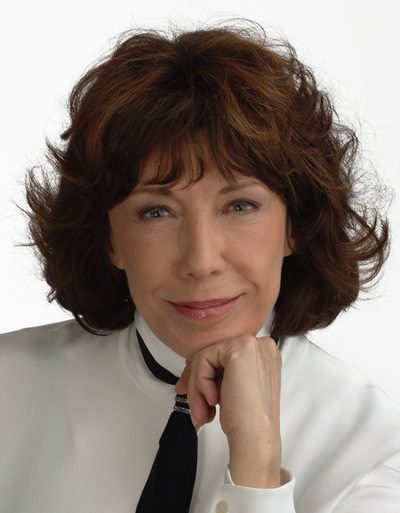
Lily Tomlin won the Mark Twain Prize for American Humor at the Kennedy Center in 2003. She’s in the region this weekend for a show at the Strathmore. (Photo by B. Patterson)
BLADE: Yeah, like what we saw in Russia during the Olympics.
TOMLIN: Right. We did a little thing — actually I wish we could have been in D.C. when we did it, but I say I was thrown in jail but thank God, I knew Ernestine and she got us out. So we make fun of it. We made a graphic where we show Putin bare-chested on a horse and Ernestine is riding bareback behind him.
BLADE: So your show isn’t just Lily’s greatest hits then.
TOMLIN: No.
BLADE: Do you enjoy working on the material?
TOMLIN: I do. We have some pieces that we still do that work well because I love them so much and I think they’re terribly funny. So it’s kind of a mix. We’re trying to do something worthwhile but that is also fun and hopefully thoughtful, hopefully even moving in some way at some point. How old are you?
BLADE: 39, but you know gay men often know pop culture before their time way more than straight men.
TOMLIN: Oh my God, yes. Paul, this photographer and musician who works with me, he kills me because there’s nothing that happens on a daily basis at our house, office or anything, that he can’t relate it to a Lucy episode.
BLADE: That’s a great quality to have.
TOMLIN: Oh, it’s so dear. I just scream laughing.
BLADE: What’s your favorite?
TOMLIN: Well, when I was a kid, “slowly I turn,” because it looked like the kind of performance piece I could do. The ballet class, too.
BLADE: You guested on “The Carol Burnett Show” right?
TOMLIN: Oh yeah.
BLADE: Lots of people are on sitcoms but you and Carol and a few others are known for certain characters. Did you feel comedic camaraderie with her?
TOMLIN: Well, I’d known her a long time. One very hot moment for me, one very happy moment, I was at CBS maybe I was doing my first special or maybe I was just guesting on some show like Glen Campbell or something. When I got “Laugh-In,” Glen Campbell was the first show I guested on and Carol, of course, shot at CBS. I was in the ladies’ room and she came in and threw her arms around me and called my name. That just made me very happy that she knew who I was and was so demonstrative with me. She’s an extremely dear person anyway.
BLADE: Did you know Lucille Ball?
TOMLIN: I read an article with her once and they were asking her about new young comedians, mostly girls, and when they got to me, she said, “I don’t get her.” My heart broke but later I met her and she told a very funny story, and acted it out for about 20 minutes, about how she had had to get a root canal the day of the Tonys. … To hear her tell it in person was just sublime.
BLADE: She seemed like she could be a bit of a tough customer. Crusty, maybe.
TOMLIN: Everybody says that, yeah.
BLADE: Maybe she felt more liberated as she got older. More candid. Do you ever feel that way?
TOMLIN: Not really. I have a hard time realizing I’m as old as I am. I don’t feel that old. I still feel innocent in some ways.
Out & About
Plan your wedding the LGBTQ way
Washington D.C. LGBTQ+ Wedding Expo scheduled for Sunday
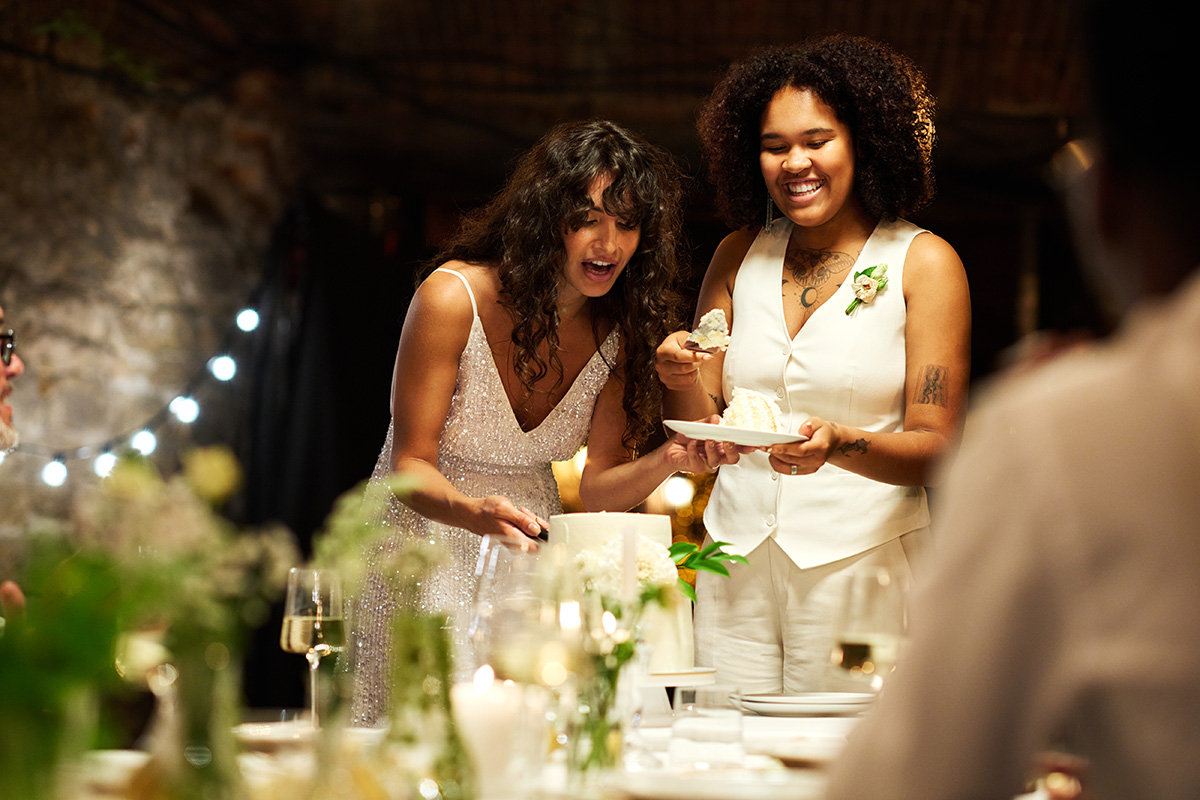
Rainbow Wedding Network will host “Washington D.C. LGBTQ+ Wedding Expo” on Sunday, March 1 at 12:30 p.m.
Guests can meet and mingle with a curated selection of LGBTQ-welcoming wedding professionals from across the region, each ready to help bring your vision to life, and spend a beautiful afternoon exploring everything they need to create a celebration that reflects them.
There will be a relaxed, self-guided look at the Watergate’s spaces and amenities, savor signature cocktails and delicious tasting samples, and connect with other couples who are on the same journey.
Visit Eventbrite to reserve a spot.
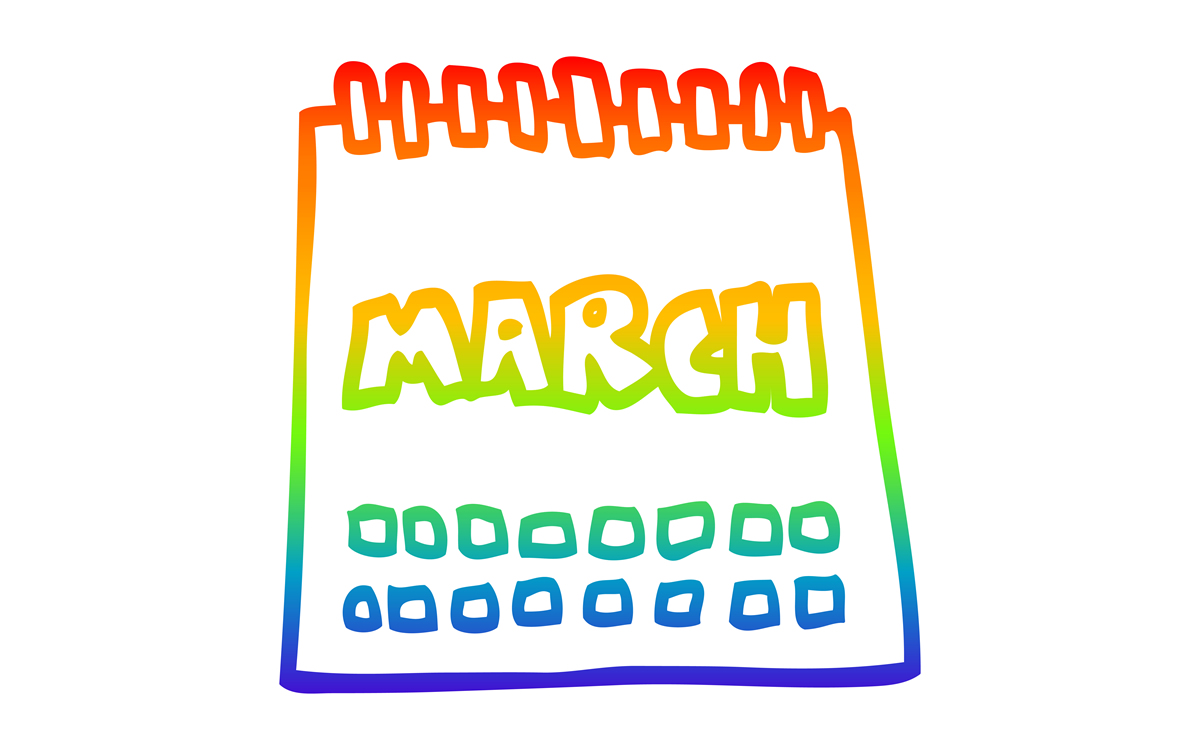
Friday, February 27
Center Aging Monthly Luncheon With Yoga and Drag Bingo will be at 12 p.m. at the DC Center for the LGBT Community. Email Mac at [email protected] if you require ASL interpreter assistance, have any dietary restrictions, or questions about this event.
Go Gay DC will host “LGBTQ+ Community Happy Hour Meetup” at 7 p.m. at Freddie’s Beach Bar and Restaurant. This is a chance to relax, make new friends, and enjoy happy hour specials at this classic retro venue. Attendance is free and more details are available on Eventbrite.
Trans Discussion Group will be at 7 p.m. on Zoom. This group is intended to provide an emotionally and physically safe space for trans people and those who may be questioning their gender identity/expression to join together in community and learn from one another. For more details, email [email protected].
Saturday, February 28
Go Gay DC will host “LGBTQ+ Community Brunch” at 11 a.m. at Freddie’s Beach Bar & Restaurant. This fun weekly event brings the DMV area LGBTQ+ community, including allies, together for delicious food and conversation. Attendance is free and more details are available on Eventbrite.
The DC Center for the LGBT Community will host “Sunday Supper on Saturday” at 2 p.m. It’s more than just an event; it’s an opportunity to step away from the busyness of life and invest in something meaningful, and enjoy delicious food, genuine laughter, and conversations that spark connection and inspiration. For more details, visit the Center’s website.
Black Lesbian Support Group will be at 1 p.m. on Zoom. This is a peer-led support group devoted to the joys and challenges of being a Black lesbian. You do not need to be a member of the Beta Kappa Chapter or the Beta Phi Omega Sorority in order to join, but they do ask that you either identify as a lesbian or are questioning that aspect of your identity.Send an email to [email protected] to receive the zoom link.
Sunday, March 1
LGBTQ+ Community Coffee and Conversation will be at 12 p.m. at As You Are. This event is for people looking to make more friends and meaningful connections in the LGBTQ community. Attendance is free and more details are available on Eventbrite.
Monday, March 2
“Center Aging: Monday Coffee Klatch” will be at 10 a.m. on Zoom. This is a social hour for older LGBTQ+ adults. Guests are encouraged to bring a beverage of choice. For more information, contact Adam ([email protected]).
Tuesday, March 3
Universal Pride Meeting will be at 7 p.m. on Zoom. This group seeks to support, educate, empower, and create change for people with disabilities. For more details, email [email protected].
Wednesday, March 4
Job Club will be at 6 p.m. on Zoom upon request. This is a weekly job support program to help job entrants and seekers, including the long-term unemployed, improve self-confidence, motivation, resilience and productivity for effective job searches and networking — allowing participants to move away from being merely “applicants” toward being “candidates.” For more information, email [email protected] or visit www.thedccenter.org/careers.
Center Aging Women’s Social and Discussion Group will be at 6 p.m. on Zoom. This group is a place where older LGBTQ+ women can meet and socialize with one another. There will be discussion, activities, and a chance for guests to share what they want future events to include. For more information, email [email protected].
Thursday, March 5
The DC Center’s Fresh Produce Program will be held all day at the DC Center for the LGBT Community. People will be informed on Wednesday at 5 p.m. if they are picked to receive a produce box. No proof of residency or income is required. For more information, email [email protected] or call 202-682-2245.
Virtual Yoga Class will be at 7 p.m. on Zoom. This free weekly class is a combination of yoga, breathwork and meditation that allows LGBTQ+ community members to continue their healing journey with somatic and mindfulness practices. For more details, visit the DC Center’s website.
a&e features
Transmission DC breathes new life into a storied sound space
A fresh home for boundary-pushing culture on H Street

Late last year, phoenix-style, a fresh home for boundary-pushing culture arose on the H Street corridor. Transmission DC – a queer, trans, and POC-owned, operated, and centered community-focused venue – powered on in the former home to the Rock & Roll Hotel (famously, not a hotel, but very much rock & roll). Transmission (1353 H St., N.E.) arrives secure in its mandate – or even birthright – to provide a place to celebrate creativity and music through a lens of inclusivity and respect.
Transmission’s team brings experience, but also representation. Owners/partners Kabir Khanna (who is also programming director), Katii B, Ellie McDyre, and Kelli Kerrigan together previously managed 618 productions, a venue in Chinatown, crafting “some of D.C.’s freakiest parties, raves, and mosh pits” they note.
They packed up operations last fall to a space curated specifically for D.C.’s underground music and culture scene, building their efforts in Chinatown to bring in more fans in queer and POC circles.
Transmission, Khanna points out, is built on DIY values. In the music scene, DIY means that promoters and organizers – often disconnected from the mainstream and part of marginalized communities – build shows and programs collaboratively, but independently from institutions, supporting each other as smaller, independent venues close. Here, Transmission aims to ensure that those putting together these underground inclusive shows have a more permanent and stable home, can have access to resources, and can provide more sustainable income to artists. “We’re trying to get more people to support and enjoy the music, and also give artists and organizers within the DIY community more structure and a larger cut,” says Khanna.
Khanna also notes that Transmission operates “under the principles of safety, inclusivity, and respect.” McDyre added that even at venues that claim inclusivity, that statement might not take place in practice. We’re “not just pitting up a rainbow flag,” says McDyre, but as some of the owners are trans and POC, audiences can see themselves reflected at the top.
Much like the DIY nature of the music community, the Transmission owners brought a DIY ethos to turning around their space.
In March 2020 – the height of COVID lockdowns – Rock & Roll Hotel suddenly shuttered, though not due to the pandemic; instead, the venue claimed that decreasing sales and increasing competition led to the closure. For 14 years, it was the central spot for cheap beer and lesser-known and celebrated acts. The space stood vacant for more than five years, until Transmission turned the power back on.
“When we got into the space, it was effectively abandoned for years,” says Khanna. “There was a ton of mold, and paint primer covering all surfaces. It was nearly falling apart.” Khanna noted that many music venues like this one, regardless of how well it was maintained, “get the shit kicked out of it,” given the nature of shows. The team called in mold removal contractors, ripped up most of the floorboards, and started fresh.
Transmission’s first floor is styled as a stripped-down black box: the better to take in the music. “It’s minimal on purpose to act as a canvas for set design and music,” without a specific aesthetic, says Khanna. Moving upstairs, the second floor has been opened up, removing some walls, and now has a larger dance area than the first floor. Beyond the first two performance levels, and a holdover from Rock & Roll Hotel, is the rooftop. Though without a stage, the rooftop space is filled with murals splashed across the walls, with a full bar. Transmission’s current capacity is 496, but the team is looking to grow that number. Transmission will also leverage the full kitchen that Rock & Roll Hotel operated, bringing in Third Hand Kitchen to offer a variety of food, including vegan and vegetarian options.
Khanna pointed out an upcoming show reflective of Transmission’s inclusive ethos: Black Techo Matters on Feb. 27. The event is set to be “a dynamic, collaborative night of underground electronic music celebrating Black History Month.” Khanna says that techno came from Black music origins, and this event will celebrate this genesis with a host of artists, including DJ Stingray 313, Carlos Souffront, and Femanyst.




















